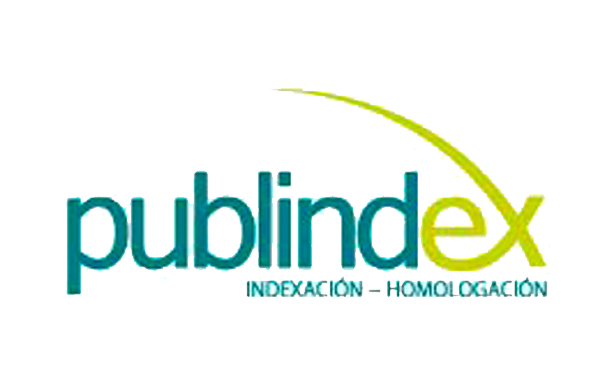Higher education and the reflective transit to the evaluative reality
DOI:
https://doi.org/10.18634/sophiaj.21v.1i.1290Keywords:
quality of education, higher education, evaluationAbstract
Higher education in its multiple missionary scenarios and in general the training of professionals for society, has discussed the forms, methods and strategies of teaching and learning that, the curriculum, didactics and pedagogy, focus the attention of all the community, but there is an element that is perhaps the most important but at the same time the least taken into account since it is the most used and almost technically does not require a deep reflection on its development, and understanding. This article of reflection seeks to go through the state of university higher education and on the way to meet the evaluation and a reflection of the importance that it has for us that it can be discussed but also the evaluative forms are updated and some imaginary and concepts are changed already outdated on it, so that new evaluation strategies can emerge in the hands of teachers and with the participation of students.References
Alcaraz, N. (2015). Aproximación Histórica a la Evaluación Educativa: De la Generación de la Medición a la Generación Ecléctica. Revista Iberoamericana de Evaluación Educativa, 8(1), 11- 25. https://revistas.uam.es/riee/article/view/2973
Ali, M., Mustapha, T. I., Osman, S. B., & Hassan, U. (2020). University social responsibility (USR): An Evolution of the concept and its thematic analysis. Journal of Cleaner Production, 124931. doi:10.1016/j.jclepro.2020.124931. https://www.researchgate.net/publication/345350446_University_social_responsibility_US R_An_Evolution_of_the_concept_and_its_thematic_analysis
Anijovich, R. (2010). La evaluación significativa. Buenos Aires: Paidós. 129-147. https://books.google.com.cu/books/about/La_evaluaci%C3%B3n_significativa.html?id=_ uGxcQAACAAJ&source=kp_book_description&redir_esc=y
Boisier, S. (2001). Sociedad del conocimiento, conocimiento social y gestión territorial, Sociedade do conhecimento , conhecimento social e gestão territorial Sergio Boisier. 2, 9-28. https://interacoesucdb.emnuvens.com.br/interacoes/article/view/583/620
Borrero, A. (2008). La universidad. Estudios sobre sus orígenes, dinámicas y tendencias. Editoral Pontificia Universidad Javeriana. https://books.google.com.cu/books/about/La_universidad_Estudios_sobre_sus_or%C3% ADge.html?id=-pwxDwAAQBAJ&redir_esc=y
Castro-Gómez, S. (2007). Decolonizar la universidad. La hybris del punto cero y el diálogo de saberes. El giro decolonial. Reflexiones para una diversidad epistémica más allá del capitalismo global, 79-91.
Chaverra, L. M., Arango, E. P., & Alzate, A. F. (2019). Prácticas de gestión de directivos universitarios: una mirada desde los principios del paradigma emergente y un camino de oportunidades por explorar. Revista Latinoamérica de Estudios https://www.redalyc.org/journal/270/27058155009/html/ Educativos, XLIX(1), 67-98. https://www.redalyc.org/articulo.oa?id=27058155009
Daviet, B. (2016). Revisar el principio de la educación como bien público. Investigación y prospectiva en educación. Documentos de trabajo. 17, 1-16. https://unesdoc.unesco.org/ark:/48223/pf0000245306_spa
Lyotard, J.-F. (1999). La Condición postmoderna. En Grandes obras del pensamiento contemporáneo. https://doi.org/10.1017/CBO9781107415324.004
Martínez Bonilla, C. A., & Sanchez Muñoz, J. C. (2011). Lo superior de la Universidad: como educación superior. Editorial Universidad Santiago de Cali.
Melo-Becerra, L., Ramos-Forero, J., Hernández-Santamaría, P. (2017). La educación superior en Colombia: situación actual y análisis de eficiencia. Desarro. soc. 78, 59-111. https://doi.org/10.13043/DYS.78.2 https://www.redalyc.org/journal/1691/169149895003/html/
Montemayor, L. E. (2011). Para La Educación Superior Basada En Competencias. Revista de Investigación Educativa, 29, 205-218. https://posgrado.utn.edu.ec/wp- content/uploads/2021/04/Libro-Educaci%C3%B3n-superior-basada.pdf
Ortega y Gasset, J. (2008). Rebelión de las masas. Editorial Andrés Bello. p. 168
Peña Borrero, L. B. (2008). La competencia oral y escrita en la educación superior. Mineducacion.Gov.Co. https://filosofiauacm.wordpress.com/wp- content/uploads/2010/02 /jose_ortega_y_gasset_-_la_rebelion_de_las_masas.pdf
Prieto, M., & Contreras, G. (2008). Las concepciones que orientan las practicas evaluativas de los profesores: Un problema a develar. Estudios Pedagógicos, 34(2), 245-262. https://www.redalyc.org/articulo.oa?id=173514136014&tab=3
Ramírez-Gutiérrez, J., García-Cardona, DM. (2024). Tecnologías disruptivas, convergencia y aceleración: Deporte y las implicaciones tecnológicas. Revista Olimpia. 21(2), 30-40. https://revistas.udg.co.cu/index.php/olimpia/article/download/4390/10628/22656?inline =1
Roco, MC. (2002). Coherence and divergence of megatrends in science and engineering. Journal of Nanoparticle Research. 4(12): 919. https://doi.org/ 10.1023/A:1020157027792.
Royo Hernández, S. (2007). Tres apuntes sobre una Entrevista a Lyotard 20 años después de ser realizada. A Parte Rei: revista de filosofía, 49, 3. https://dialnet.unirioja.es/servlet/articulo?codigo=4067385
Saavedra, M., & López, R. (2022). La conexión epistémica entre formación humanista y educación profesional universitaria. Sophia, Colección de Filosofía de la Educación, 32, 275-297. https://doi.org/10.17163/soph.n32.2022.09
Touraine, A. (2012). Modernity and modernization. En International Comparative Social Studies. https://doi.org/10.1017/9781316771303.070
Vélez Medina, B., Cifuentes Wchima, X., & Montoya López, J. (2011). Convergencia entre el conocimiento, el contexto y la perspectiva de humanidad para la reforma curricular en la Universidad La Gran Colombia - Armenia: Relato de una experiencia. Sophia. https://doi.org/10.18634/sophiaj.7v.1i.117
Zuleta, E. (1985). Educación un campo de combate. Editorial Fundación Estanislao Zuleta. https://rednelhuila.wordpress.com/wp-content/uploads/2014/09/la-educacion-un-campo -de-combate-1.pdf
Zuleta, E. (2004). Elogio de la dificultad. Praxis Pedagógica, 4(5), 87-91. https://doi.org/10.26620/uniminuto.praxis.4.5.2004.87-91
Downloads
Published
Issue
Section
License
Creative Commosn Licence 4.0








